Space experiment could help future Moon and Mars missions
- Published
- comments
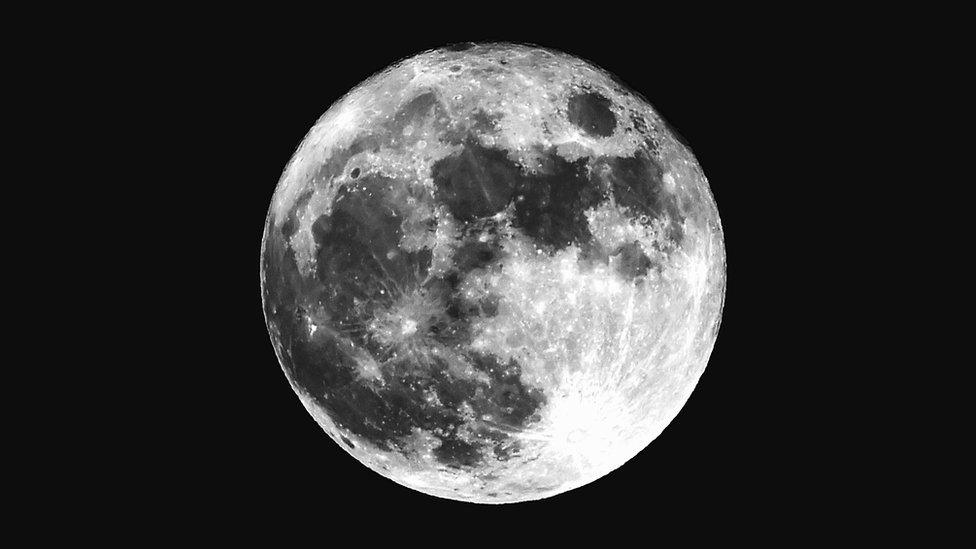
Ever heard of mining in SPACE?! Well - now you have!
A mining-in-space experiment led by UK scientists is due to take off for its journey to the International Space Station (ISS) on Saturday.
They are hoping to unlock resources for future missions to the moon and Mars and even hope their discovery could help people gather the minerals needed to build a long-term presence beyond Earth.
Living on the Moon might be a dream that's out of this world for some, but not for these scientists!
How does mining-in-space work?
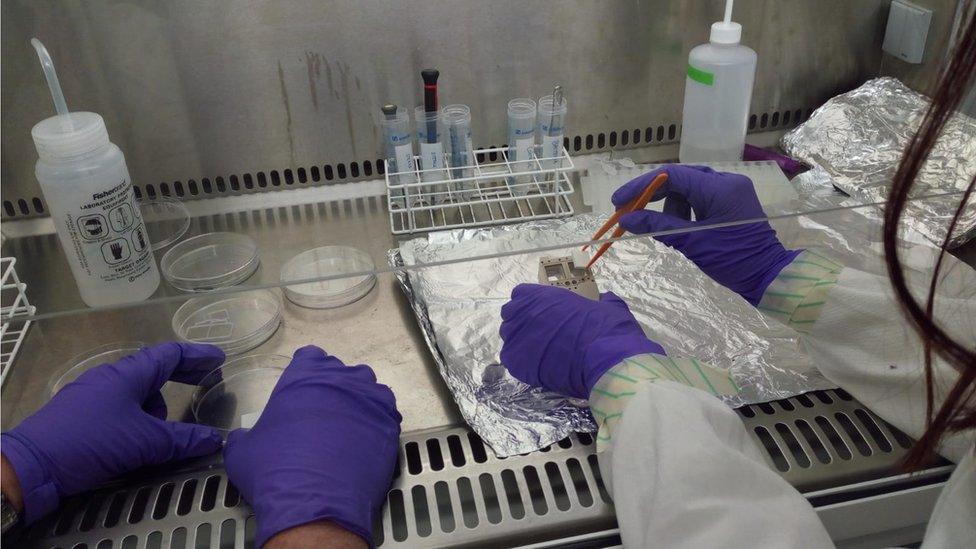
Samples being prepared for the UK-led biomining-in-space experiment
Scientists are using this experiment to explore how to "sustain humans permanently beyond Earth" - as space agencies are aiming to send people to live on the Moon within the next decade. Amazing!
To do this "we need to get access to useful materials" and "this experiment advances our ability to do that", says Professor Charles Cockell from the University of Edinburgh.
The BioAsteroid experiment is due to be blasted into orbit on a SpaceX rocket on Saturday at 4.39pm.
It will take up matchbox sized containers carrying asteroid rock.
That will then be used to grow bacteria and fungi in an incubator for three weeks to investigate how gravity affects how the microbes and rock interact with each other in reduced gravity.
Scientists will investigate how the microbes extract materials from rocks in space.
Microbes are tiny living things that are found all around us and are too small to be seen by the naked eye. They live in water, soil, and in the air.
On Earth, microbes are used in some mining as a friendly way to access metals, they digest the rock and what is left behind are the metals that miners need.
Further space exploration
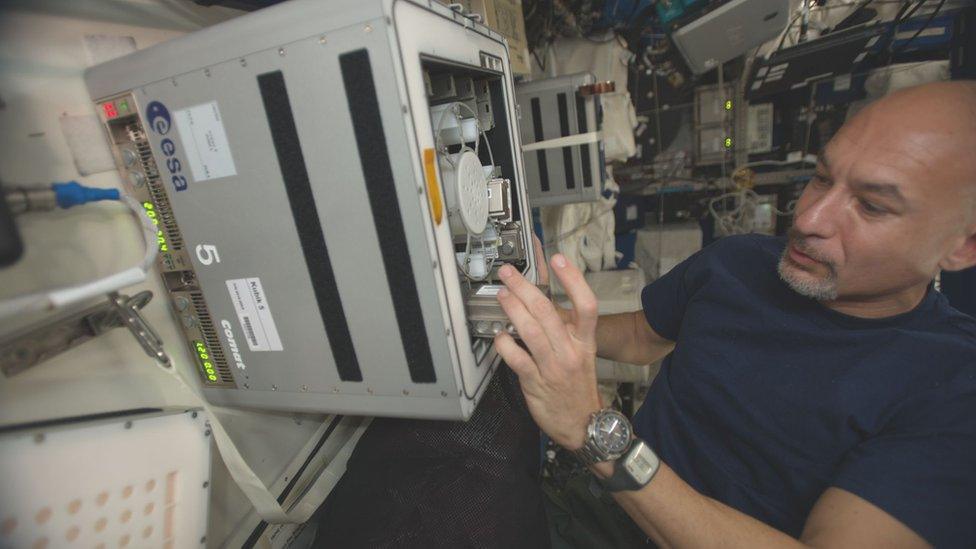
Luca Parmitano conducting a previous BioRock experiment ahead of the UK-led biomining-in-space experiment
If this experiment is successful, the method would help efforts to explore the Moon and Mars, allowing humans to extract building materials, water or rocket fuel.
Experimenting on the ISS allows scientists to carry out investigations in conditions that cannot be replicated on Earth.
Libby Jackson, human exploration programme manager at the UK Space Agency, said: "If we want to keep exploring space and pushing the boundaries of what is possible, then we will need to make or find the essential elements required to support life."
She went on to explain how the team is "at the forefront of efforts to recreate the foundations of life on Earth."
This experiment is "opening up new opportunities for UK scientists and organisations to undertake science in space," she added.
- Published3 November 2020
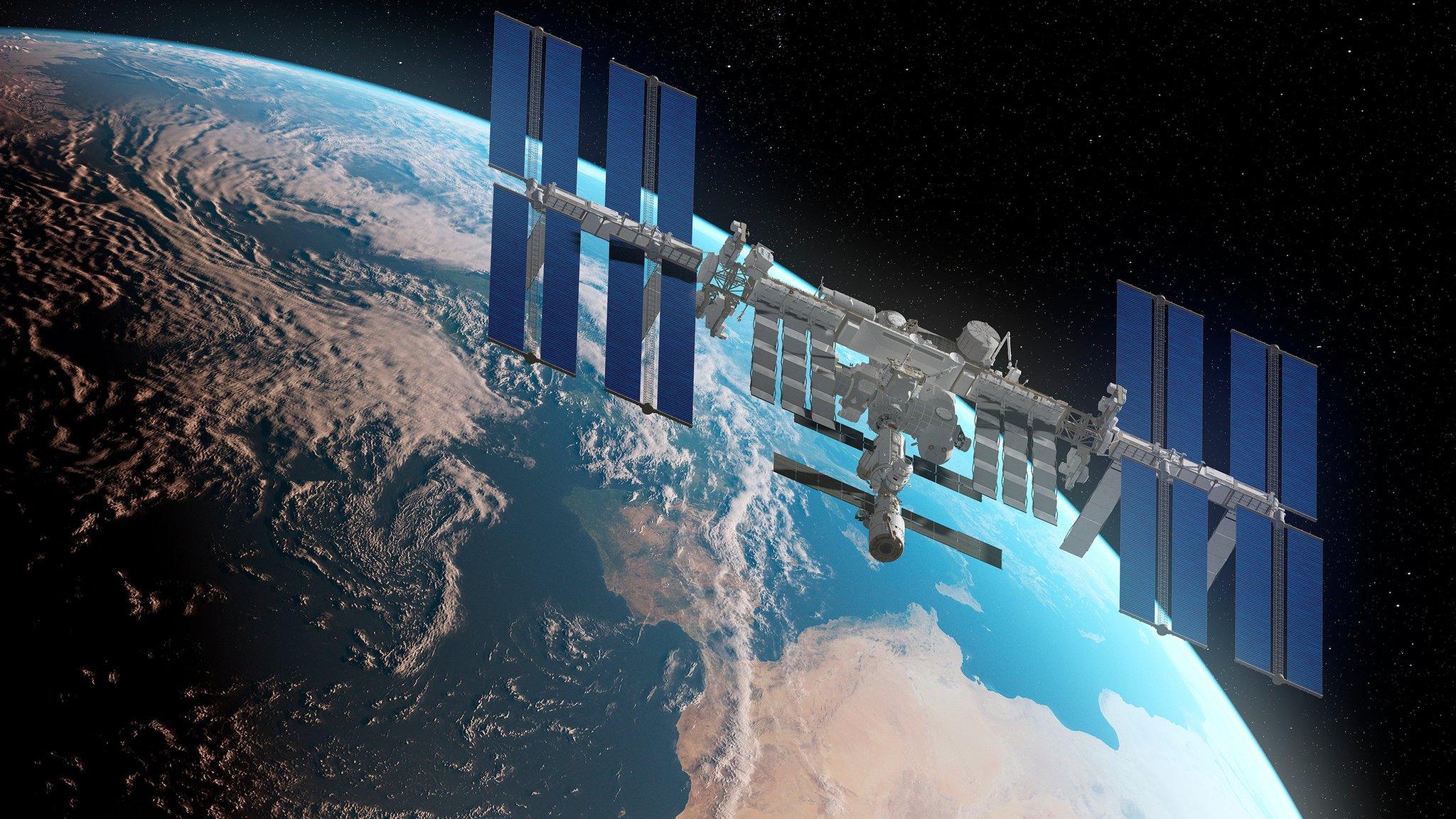
- Published7 March 2018
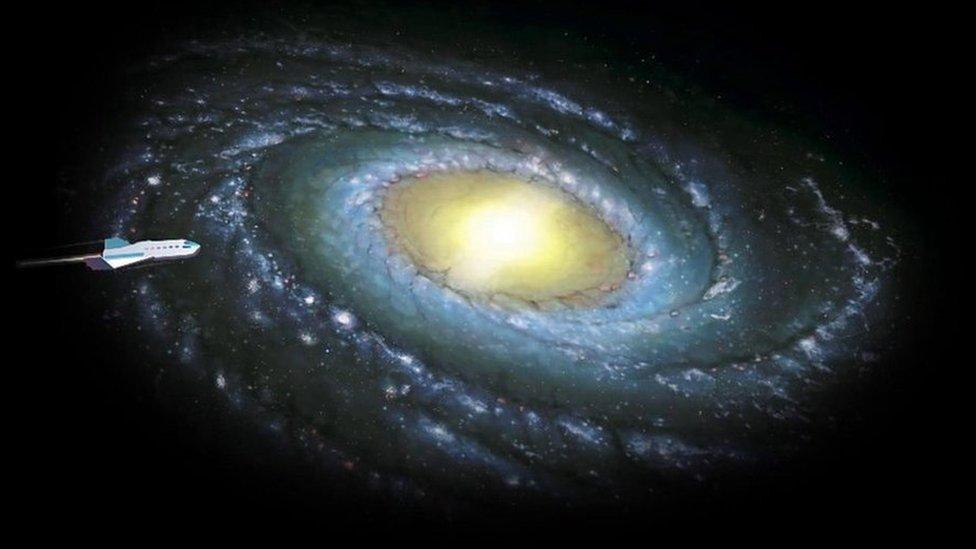
- Published23 October 2021

